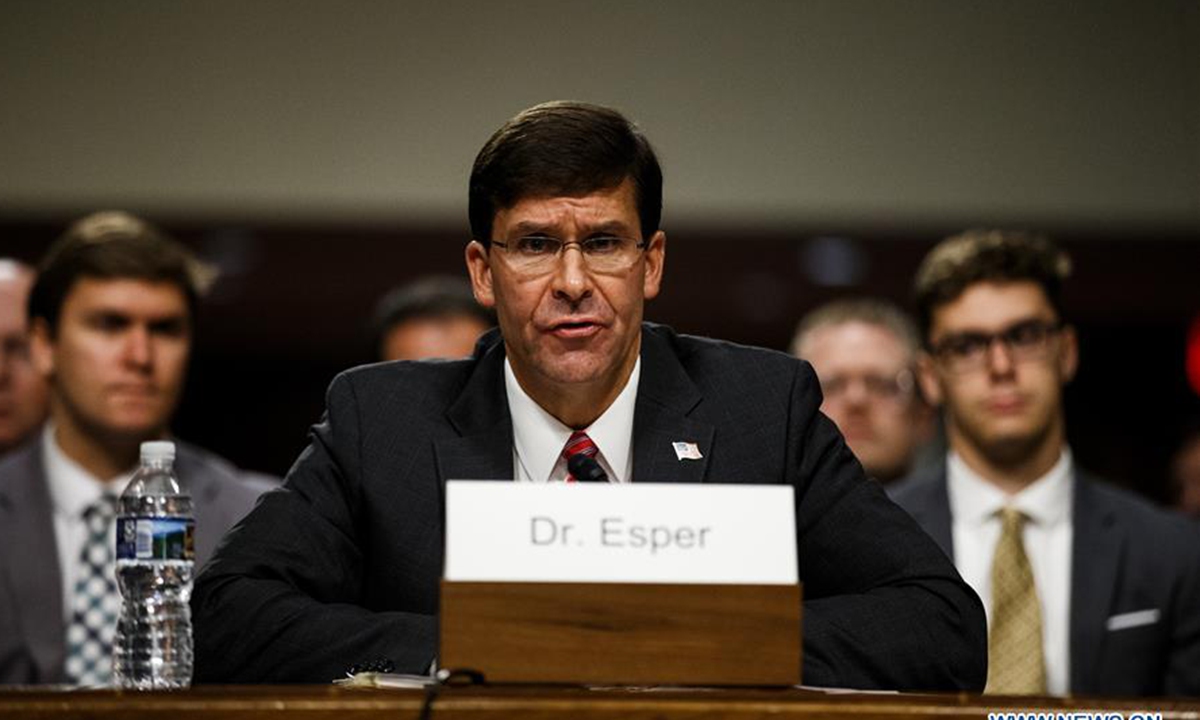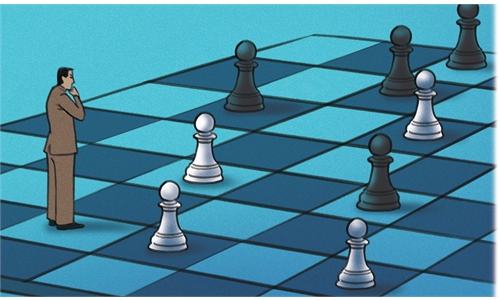
Mark Esper Photo: Xinhua
US Defense Secretary Mark Esper showed off the US' alliance system during his speech at the Washington-based think tank Atlantic Council on Tuesday.
"China and Russia probably have fewer than 10 allies combined… America's network of allies and partners provides us an asymmetric advantage our adversaries cannot match," he said.
Indeed, the US alliance system is unique. Statistics show that there are 68 US allies all over the world. But if Washington really believes it can ask for everything from the system to contain China, it would be totally wrong.
The US alliance system was mainly established after WWII and during the Cold War era. Right now, the system lacks a common enemy, and US allies are drifting further away from each other due to a conflict of interests. The seemingly powerful alliance system turns out to be no longer effective in acting against China.
Development is the core interest of all countries worldwide. How can the US turn China, the world's top trader, into the so-called common enemy of its allies? Even the US is reluctant to give up the Chinese market. As the US suppresses China, it is also looking forward to profiting from China.
Washington's biggest problem is that it refuses to face the reality. China's rapid development has given some Americans a sense of crisis. This is normal and understandable, and people in other countries will inevitably have ambivalent feelings about China's rise. But what the US needs is to undergo internal reforms to further release the vitality of US society, mobilize the diligence of its citizens, and improve the country's competitiveness. Unfortunately Washington has taken a wrong path, trying to use geopolitical methods it used during the Cold War to resolve problems in the current globalization era.
US allies will not follow its suit. They may at best ideologically support the so-called unity demanded by Washington, but they will not pay for US political elites' ambition at the expenses of their own development interests. US allies have diverse interests on the China issue. Only a few countries have territorial disputes with China, and they do not want relations with China to hang on territorial issues.
Territorial issues do matter, but they are not the whole picture. The US cannot find any common interests to gather its allies on the China issue.
High-ranking US officials, including Esper and US Secretary of State Mike Pompeo, have been traveling around the world to sell US ideas even during the COVID-19 pandemic. But what they have gained is very little because China is not the enemy of US allies, and Washington cannot turn China into an enemy.
Is it better for Japan and South Korea to be China's enemy or to balance between China and the US? Anyone who has common sense can tell. And why should Europe become China's enemy? Europe has long been suppressed by the US, and multipolarization is European people's pursuit. Moreover, China and Europe share a wide range of cooperation. European countries should follow their own interests, instead of US interests, when handling their relations with China.
The US is more powerful than China, not to mention it has many allies. However, Washington now seems powerless, and the key is it has been working in the wrong direction, and is incompatible with the spirit of the times. The US cannot even understand the interests that relate to its China policy, which makes it even harder to mobilize other countries. US allies may be forced to comply in public but they will resist in private.
Since it cannot turn China into a common enemy of its allies, Washington needs to provide more benefits in exchange for the loyalty of its allies. However, US financial resources today cannot be compared with those during the Cold War era. The US and its allies have been calculating economic gains and losses, and such a situation is irreversible.
Washington has overestimated the role of the so-called common values in gathering its allies. The US is selfish. It has selfish goals and means in its strategy to contain China. But selfish unilateralism does not go far - this is the true universal value of human society.

